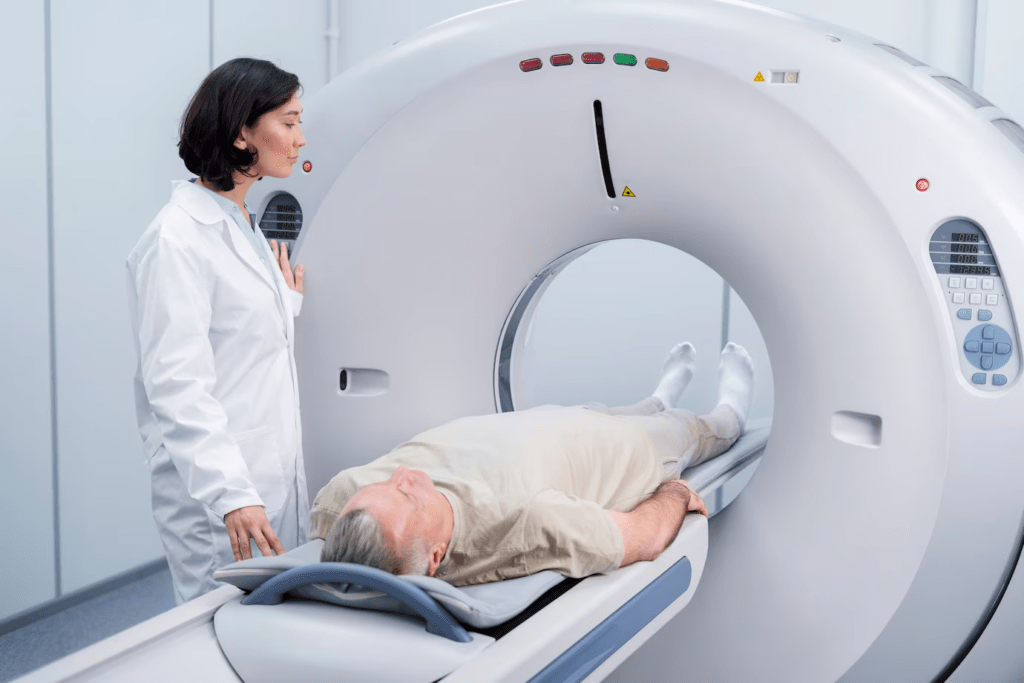
You may have noticed that every moment and decision counts whenever you visit a busy hospital. To make you feel a little comfortable, a team of professionals works behind the scenes with the very best technology. Among these professionals are radiology technicians. They help doctors see the hidden details of the human body.
If you are interested in the healthcare industry and have a passion for technology, becoming a radiology tech might just be the perfect career path for you. There is a lot to consider when it comes to salary potential and job growth.
However, before diving in, you need to know what the role really is. So, let us take a closer look at what it means to be a radiology technician, what the radiology tech salary is in the U.S., and what the future holds for this rewarding profession.
What Does a Radiology Technician Do?
Radiology technicians, or radiologic technologists, operate imaging equipment to create detailed images of the inside of a patient’s body. They assist radiology technologists to diagnose and treat broken bones, tumors, and infections. Radiology techs work with various types of medical imaging technologies, including:
- X-rays (used for viewing bones and detecting issues like fractures)
- CT scans (used for detailed images of organs and tissues)
- MRI scans (used for imaging soft tissues like the brain and muscles)
- Ultrasound (used to observe internal organs and monitor pregnancy)
They play an important role in performing accurate diagnoses as well as in making patients feel safe and comfortable during imaging procedures. The career is a blend of patient care, technology, and diagnostic expertise.
How to become a radiologic technician?
Radiologic technician is a career that’s rewarding and has an impact. You will be at the center of patient care and advanced medical imaging. Below are some key points that will help you learn more about this career path:
Complete a Radiology Training Program:
Radiologic technicians usually require an associate degree in radiologic technology. They teach you how to operate imaging equipment to take pictures, give patient care, and the safety of radiation.
Obtain certification:
Certification is not always mandatory, but it’s strongly advised. Certification for radiologic technologists is offered by the American Registry of Radiologic Technologies (ARRT). Certification helps you get a better job and shows that you meet industry standards.
Get licensed (If Required in Your State):
Radiologic technologists must be licensed in some states. If you are unsure, check with your state’s regulatory body to see if you need a license to work in your area.
Gain Experience:
Once you finish your training, attend school, and receive your certification, you will have the chance to work as a radiology technician. In no time, you can become a specialist in some imaging techniques or get even higher certifications in your career.
If you are interested in getting into this field, you should look up CCI Training’s Radiology Technician Program.
Radiology Technician Salary: What to Expect
Radiology technician salary can depend on experience, location, and type of imaging technology. According to the U.S. Bureau of Labor Statistics (BLS), in 2023, the mean annual salary for radiology techs was $75,250. This positions begin at $47,000 and can range up to $80,000 or more per year, depending upon experience.
Radiology Technician Salary by Location
Your radiology technician’s salary can vary depending on where you live. The salaries are also higher in areas with a higher cost of living, such as major cities or states with a really big demand for healthcare services.
For instance, the radiology technician’s salary in California is higher because of the cost of living. Depending on experience and location within the state, you can expect to have an annual mean salary for around $103,150.
Radiological technician salaries in rural areas may be lower, but these are still good-paying, stable jobs offering opportunities for advancement.
Radiologic Technologist Salary
Radiology technologists’ salaries are slightly higher than the average salary of radiologic technicians, most especially for those with advanced training or specialization in fields such as MRI, CT scans, and mammography. If you specialize in one of these areas, you can make more money because specialized skills are in demand.
X-Ray Technician Salary
An X-ray technician’s salary is usually at the lower end of the scale compared to other imaging fields and usually lies in the same range as a general radiologic technologist. The X-ray tech employment rate is strong, and this role is still an essential part of diagnostic healthcare.
Radiology Technician Job Outlook
Radiology technicians have a good job outlook. The US Bureau of Labor Statistics (BLS) projects employment for radiologic technologists and technicians will grow by 6 percent from 2021 to 2031, faster than the average for all occupations. The increase in demand for medical imaging, especially in an aging population, and an increase in the demand for diagnostic imaging services is driving this growth.
Additionally, as technology continues to grow, radiology technicians will have to support more advanced technology and use new imaging approaches. The high demand for radiologic technologists coupled with good job opportunities for years to come.
Career Growth and Advancement Opportunity
There are different ways to go up the career ladder if you are a radiology technician. All this experience can help you decide to specialize in just some type of imaging (MRI, CT scan, etc.) and earn more money and job opportunities.
Specialization: Advanced imaging technologists earn more than general radiology techs. Take, for example, MRI technologists or CT technologists, who usually make more money than general X-ray techs.
Leadership Roles: Once you’ve spent a few years doing this, you might qualify for managerial or supervisory positions working with a group of radiology technicians.
Teaching: You may enjoy teaching aspiring radiologic technologists at a technical school or university if you enjoy sharing your knowledge.
Advanced Education: Radiology technicians do not have to only seek a Bachelor’s degree, as many may want to advance their career in other directions, such as pursuing a Master’s degree, administrative positions, clinical research, or higher paying positions in teaching or healthcare management.
The Bottom Line
There is a good earning potential, good job security, and a good future in radiology technicians. The salary range is $64300 (average). If you are interested in technology and healthcare, with good expected growth in the field, it’s a good choice.
If you’re just starting out or wish to gain more experience, you will have a wealth of opportunities. A rewarding and well-paid career in this growing field is open to you with the right education, dedication, and certification.
Program Offered
- Pharmacy Technician Training
- Online Medical Assistant
- Medical Billing and Coding Specialist Program
- Cloud Computing Technician Training
- Computer Network Technician
- Business and Accounting
- Radiology Technician Training
- Medical Assistant Program
- Computer Support Technician
- Cybersecurity Program
- Virtual Assistant Training

This article is written by
Share this article
Program Offered
- Pharmacy Technician Training
- Online Medical Assistant
- Medical Billing and Coding Specialist Program
- Cloud Computing Technician Training
- Computer Network Technician
- Business and Accounting
- Radiology Technician Training
- Medical Assistant Program
- Computer Support Technician
- Cybersecurity Program
- Virtual Assistant Training

This article is written by
Share this article
Frequently Asked Questions FAQ's
How much does a radiology technician make?
In the US, the radiology technician salary averages from around $65,000 per year, and salaries for entry-level positions start from around $47,000, and senior radiology technicians can make $80,000 or more each year.
How much does a radiologic technologist make in California?
Location and experience can determine a California radiologic technologist’s average salary from $75,000 to $100,000.
How does location affect radiology technician salaries?
Radiology technician salaries in California and other high-cost-of-living states tend to be higher, with salaries ranging from $75,000 to $100,000 or more in some areas.
What is the job outlook for radiologic technologists?
The job outlook for radiologic technologists is positive, with an expected growth rate of 6% from 2021 to 2031 due to the increasing demand for medical imaging.
Related Articles


















